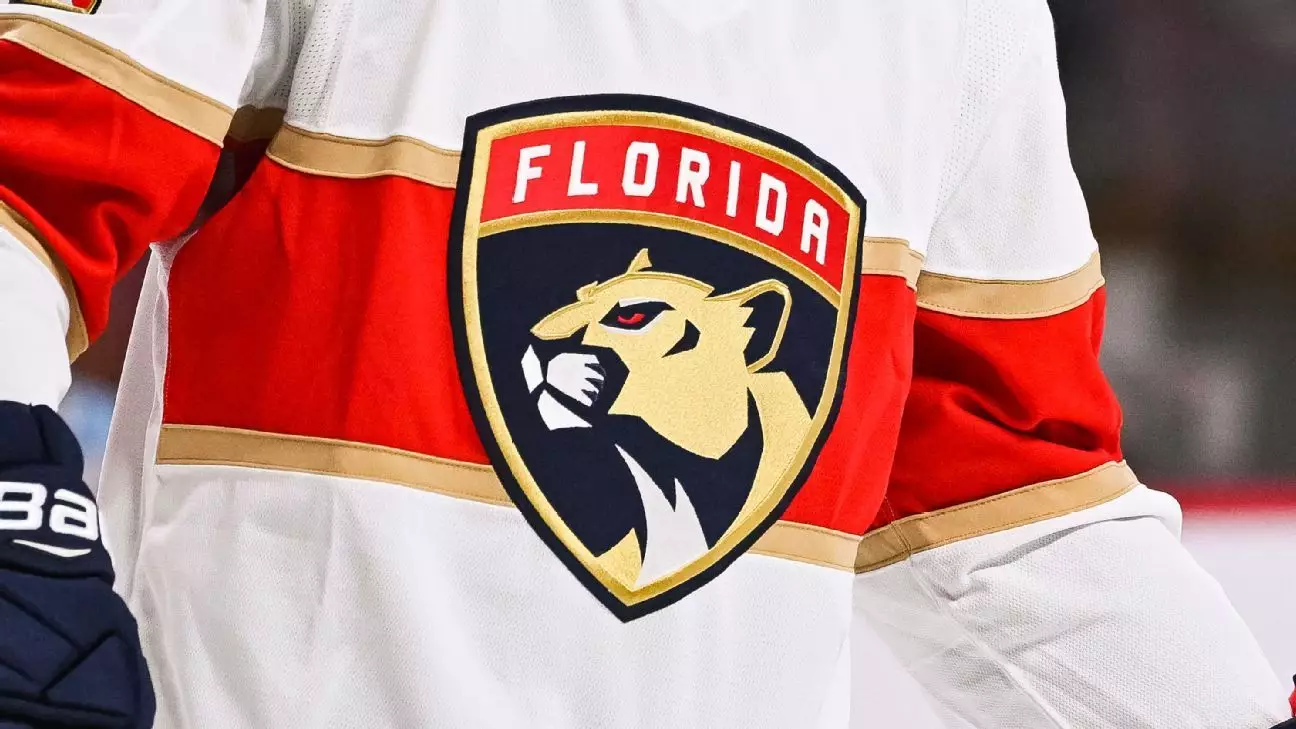The National Hockey League (NHL) is no stranger to controversies, but the recent suspension of Florida Panthers minority owner Doug Cifu has raised eyebrows across the sport. This incident serves as a poignant reminder of how social media can escalate situations and impact professional reputations within the high-stakes world of sports ownership. Cifu finds himself under scrutiny after several incendiary social media posts surfaced over the weekend, ultimately leading to his suspension from any involvement with the Panthers or the league at large.
Cifu’s suspension is particularly striking not only because of his position as vice chairman and alternate governor of the Sunrise Sports & Entertainment—responsible for managing the Panthers and their arena—but also because it highlights the intersection of sports, politics, and personal accountability in today’s hyper-connected landscape. His impulsive engagement with fans—notably during a playoff series against the Toronto Maple Leafs—revealed a blatant disregard for the decorum expected of someone in his stature.
The Trigger: A Heated Exchange
The crux of the issue originated from an exchange with a Toronto Maple Leafs fan, who made a provocative comment connecting hockey’s aggressive strategies with the moral difficulties posed by humanitarian crises, specifically referencing the Israel-Palestinian conflict. Cifu’s reaction was anything but measured; instead of promoting a respectful dialogue, he flamed the situation with provocative retorts that reflected poorly on himself and the Panthers organization.
By responding to an assertion that questioned the ethical implications of hockey tactics with condemned insults, Cifu not only failed to uphold the dignity expected of a high-ranking sports executive but also unwittingly invited the NHL’s attention to his conduct. The nature of his comments, which dismissed concerns about human rights issues, coupled with nationalist jingoism, cataloged a troubling portrait of a public figure choosing inflammatory rhetoric over civil discourse.
The Fallout: A League’s Stance on Unacceptable Conduct
The NHL’s decision to suspend Cifu was swift and unequivocal. The league’s statement underscored a critical point: public figures, especially those in positions of power within professional sports, must adhere to standards of behavior that reflect well on the institution they represent. This kind of behavior, particularly in the face of serious geopolitical issues, is deemed unacceptable within the NHL’s ethos.
Cifu’s posts highlighted not just a lapse in judgment but also an apparent disconnect from the values of inclusivity and respect that many leagues are aspiring to uphold. The NHL’s disciplinary action reinforces that athletes, coaches, and executives cannot escape accountability, particularly when their words can resonate with millions on social media platforms. This incident sets a precedent that poor behavior—no matter the platform—will not be tolerated.
A Lesson in Accountability and Public Perception
Critically, this situation reveals the imperative of accountability in the realm of sports. As public figures, owners like Cifu carry not just their personal opinions but also the weight of the organizations they represent. The backlash from the public and fans in response to his comments serves as a vital reminder that engagement with controversial topics should be approached with care, especially given the instant and far-reaching nature of social media interactions.
Cifu’s initial message was not just a lapse in judgment but, arguably, a deeper reflection of personal biases that did not align with the broader audience that the Panthers engage with. The dialogue around his posts can lead to questions about how sports franchises address sensitive political issues and the responsibility their officials bear in articulating viewpoints thoughtfully.
With Cifu’s future in question and a scheduled meeting with NHL Commissioner Gary Bettman looming, there remains uncertainty about the pathway for both his redemption and the Panthers as defending champions navigating through not just a tough playoff series but also a public relations crisis. As the situation develops, it may well alter how similar incidents are handled in the broader context of the professional sports landscape.


Leave a Reply